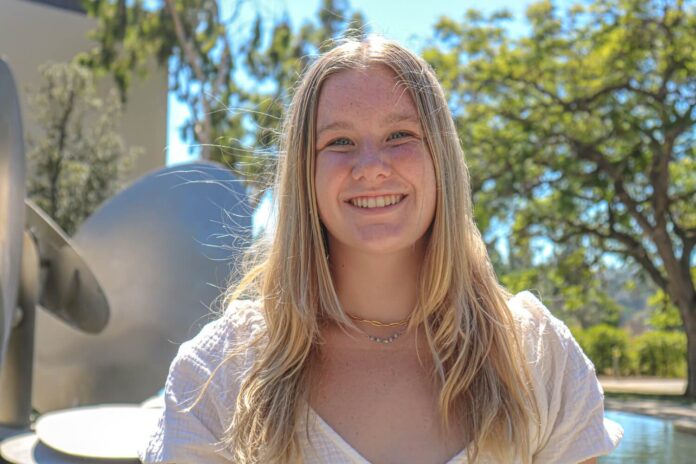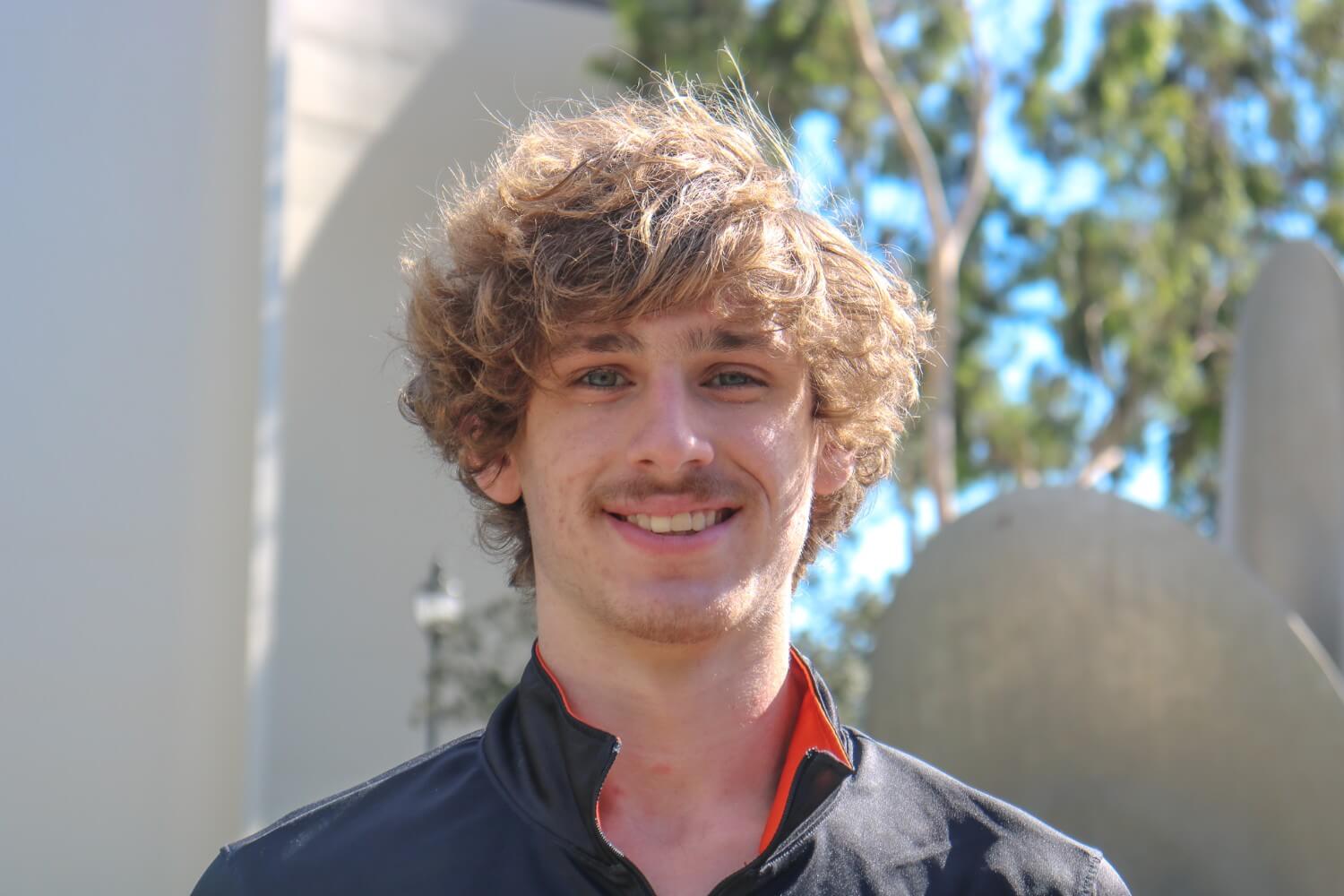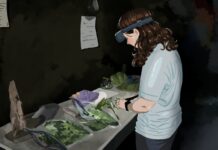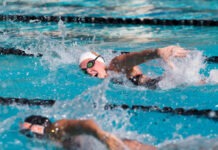
Between practicing for both swimming and water polo, completing her biochemistry major and hanging out with friends, Sam Edgington (sophomore) said it can be difficult to balance her life. Her friends who are athletes said they felt the same stress. Then one day, scrolling on Instagram, Edgington said she found a potential outlet for the shared struggles — The Hidden Opponent.
“It’s about starting these open dialogues and allowing athletes to speak up when they are not mentally okay,” Edgington said.
According to its website, The Hidden Opponent strives to end the stigma around mental health in sports and advocate for the wellbeing of student-athletes. Edgington, founder of Occidental’s chapter, said she hopes to bring a positive change for the athletes on campus.
“I’ve talked to athletes around campus, and they really want this community supporting them,” Edgington said. “It’s exciting to see I’m not alone in my mental health struggles.”
Nico Morales (sophomore) and Jack Spencer (sophomore) both run track and plan to join the club. Morales, who also plays basketball, said that he appreciates the club’s focus on athletes.
“We are very fortunate to be able to play our favorite sport at the collegiate level,” Morales said. “But that doesn’t disregard every struggle we’ve had with our mental health. A lot of people won’t understand how mentally tiring it is.”

Spencer said that as a member of the track team, he feels the sport is just as mental as it is physical.
“Knowing you feel comfortable in your own skin, I believe you are going to perform better,” Spencer said. “If you’re not in full peace of mind, you’ll never perform to where you can be.”
All three athletes said that a difficult aspect of dealing with mental health in sports is distinguishing their self-worth from their athletic performance. Edgington said that after years of swimming, the two have become closely correlated for her.
“When I’m swimming well, I definitely feel better about myself,” Edgington said. “And it’s really become a main part of my identity, which I’ve been working to separate a little bit more.”
Morales said he is also trying to sever that connection while on the court.
“If I make a mistake, I don’t forgive myself,” Morales said. “And it ends up spiraling, because if you don’t move past it, you’re going to make more mistakes.”
Edgington said the club also intends to change the culture around discussing mental health in the sports community. According to Spencer, being able to talk about mental health struggles gives athletes a chance to mentally recover by putting athletics to the side. Spencer said that coming out of the pandemic and moving far from his home on the East Coast set him up for a difficult first year of college.
“I started developing unhealthy coping mechanisms, and my schoolwork was getting affected,” Spencer said. “Taking a step back allowed me to get through the second semester, and then eventually get to where I am right now, which is in a very good place.”
The philosophy of taking a break goes along with the idea that mental health should be treated the same way athletes treat their physical health, which Edgington said she wholeheartedly believes in.
“Someone struggling with increasing anxiety is just as important as someone that twisted their ankle in practice,” Edgington said. “However, with mental health, you could look perfectly fine on the outside. So I think it needs to be a top priority for athletes to be checking in with themselves on a regular basis to make sure they’re okay.”
Morales said the hardest part about giving precedence to mental health is the pressure the athletes are under.
“Pressure is a big conversation, a big buzzword,” Morales said. “There’s a lot of pressure from yourself, your parents, your coaches, and others to be this star athlete and star scholar. But once athletes have an area to open up and talk, we can see some change.”
Coaches’ mentalities largely affect whether athletes feel comfortable sharing their struggles, and Edgington said The Hidden Opponent club can also encourage them.
“[The club is] trying to convince athletes, coaches, trainers and athletic administration that mental health injuries are just as important as physical injuries,” Edgington said.
Spencer said while he grew up in an environment that taught him to prioritize sports at all costs, he feels his coaches on the track team have laid an encouraging foundation for players struggling with mental health issues.
“If you need a break, they’ll be attentive to that,” Spencer said. “When I told them I couldn’t be fully present, they were understanding.”
Edgington said that the overall goal is to grow a community and uplift everyone in the sports community so they feel free to speak up.
“One person [says] ‘I’m struggling’ and a few other people start saying that, and a few more,” Edgington said. “It allows you to create that culture of caring and support.”
The first meeting for The Hidden Opponent is Sunday, Sept. 25. Contact Sam Edgington at sedgington@oxy.edu.
Contact Kawena Jacobs at jacobsk@oxy.edu
![]()





























